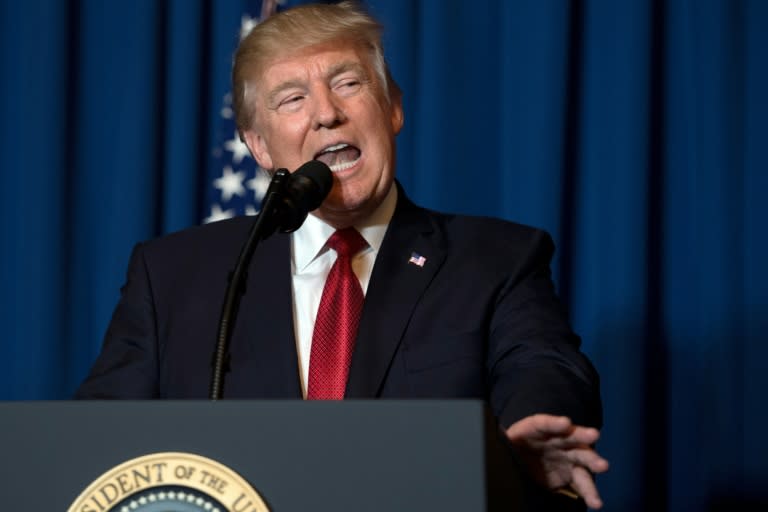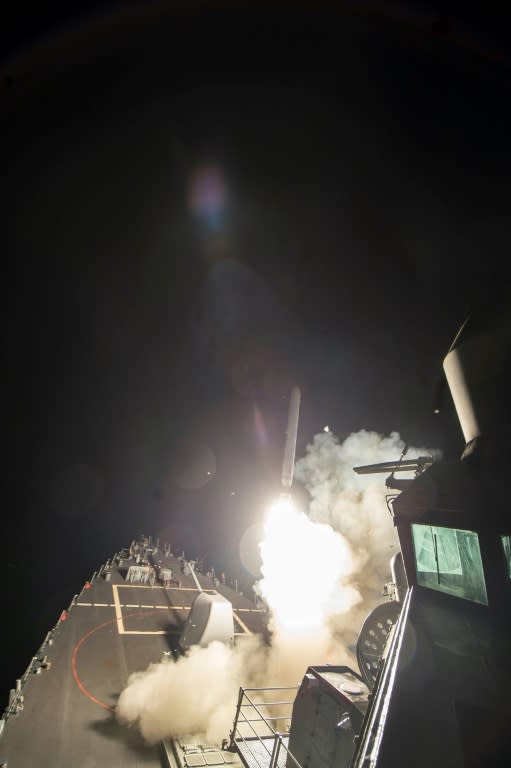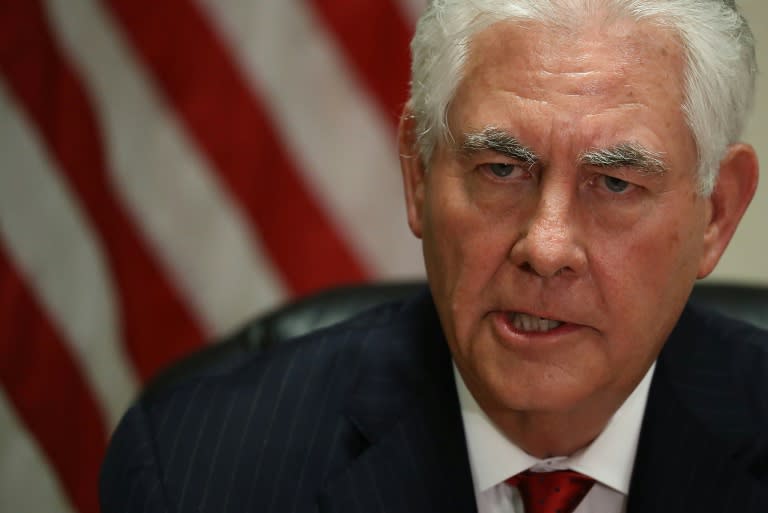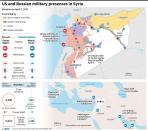Trump's Syria strike poses challenge for Kremlin
Russia hailed Donald Trump when he came to power as the leader who could help restore battered ties between Moscow and Washington. But the US president's surprise missile strike in Syria against the Kremlin's ally Bashar al-Assad has instead thrown down a gauntlet, infuriating Moscow and challenging its dominance in the war-torn country. Since launching a bombing campaign to support Assad's forces in September 2015, Russian President Vladimir Putin has turned the tide in the six-year war and made Moscow the key player in shaping Syria's future. As Washington backed off under former president Barack Obama, Putin stepped in to fill the vacuum and reassert Russian influence in the Middle East. Now, Trump has struck after just a few days of outrage over an alleged chemical weapons attack, ignoring Moscow's claims the regime was not to blame. The new US leader's willingness to wade in appears to have caught the Kremlin flat-footed and represents a threat to Moscow's undisputed superiority in Syria. The immediate reaction to the strike was strong condemnation of an "aggression against a sovereign state" as officials struggled to digest the news. The Kremlin accused Trump of reneging on pledges to focus on fighting Islamic State jihadists and insisted the move would "inflict considerable damage on US-Russia relations, which are already in a lamentable state". - Russian defences? - The fact that the US managed to strike a Syrian air base unhindered has also raised immediate questions over Moscow's much-vaunted defence capabilities in the country. Russia shipped the latest S-400 air defence system to its Khmeimim air base in Syria after a Turkish jet shot down one of its warplanes in October 2015. Kremlin spokesman Dmitry Peskov said the US had warned Moscow ahead of the strike, but he refused to say whether any Russian soldiers had to be evacuated from the base nor if Moscow had taken a conscious decision not to try to shoot down the US missiles. Russia's military insisted its air defences could protect its forces deployed in Syria and said "measures" would be taken to bolster Syrian's own system. But experts said the US strike showed Moscow was likely unwilling -- as well as unable -- to stop an attack against a determined Washington. "Russia has helped the Syrians update their air defences but it seems the Americans can easily overcome them," independent Russian military analyst Pavel Felgenhauer told AFP. Felgenhauer said that Moscow was likely hoping the US strike was a one-off and would hold back from any retribution that could up the tensions still further in the expectation that it can keep the lid on things. "They will of course severely condemn the American 'aggressor' and complain, but will not move onto radical actions," he said. - Tillerson visit - The strikes in Syria came as Moscow and Washington were gearing up for a key week in relations between the two countries. Trump's top diplomat, Rex Tillerson, is set to pay his first visit to Moscow next week as US secretary of state. Russia's hopes of a rapid improvement in relations have already dimmed as ties to Moscow have become politically toxic for Trump, after allegations the Kremlin conducted a hacking and influence campaign to help get him elected. Moscow was intent on using the visit to bolster its calls for the US to join forces against IS jihadists. These talks now look set to be dominated by the fallout from the US strikes and the deep divisions over Syria. But analyst Andrei Baklitsky said the fact that Moscow had not pulled the plug on Tillerson's visit showed the Kremlin was hoping it could weather this storm and get on with repairing ties. "There is the sense that all sides seem to be trying to evaluate what happened and what it means, but not that this is the start of a major confrontation," Baklitsky from the Moscow-based PIR Centre think tank said. From now on, however, it looks like a shocked Moscow will have to pay more heed to the US over Syria after edging Washington further out of the picture and largely getting its own way. "American involvement in the war in Syria has been dangling for a long time like a sword of Damocles," Baklitsky said. "Now it is clear that America is capable of using force in the region and that means America's opinion needs to be listened to more.











